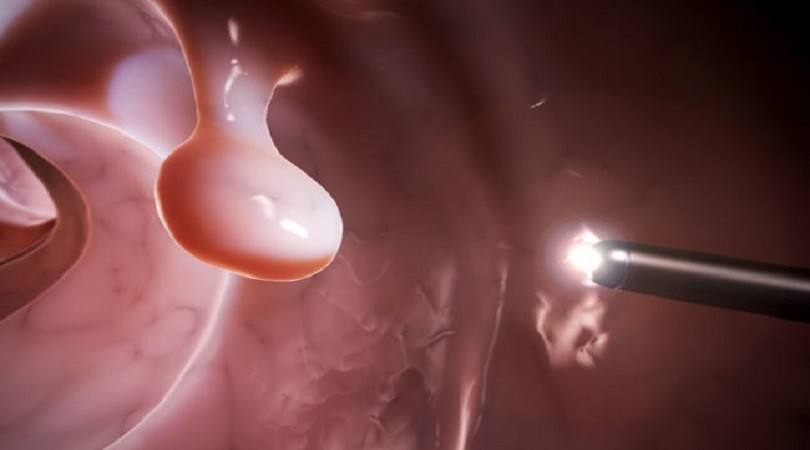Last Updated on January 6, 2025
Having a colonoscopy while pregnant is generally not recommended and should only be performed in rare cases when the benefits outweigh the risks. During pregnancy, a doctor will usually consider alternative diagnostic procedures such as mri, ultrasound, or blood tests.
However, if a colonoscopy is deemed necessary, the procedure will typically be postponed until after delivery. It is essential to prioritize the health and safety of both the mother and the developing fetus. In this article, we will explore the reasons why having a colonoscopy during pregnancy is not advisable and what other diagnostic methods can be used. We will also discuss the risks associated with colonoscopy during pregnancy and what to do if you suspect a colon-related condition.

Credit: www.madeformums.com
Related: Can You Get A Hydrafacial While Pregnant?
Understanding Colonoscopy And Pregnancy
Pregnancy is a critical phase for both the mother and the fetus. It is essential to prioritize health and safety during prenatal care. Gastrointestinal issues can hinder a healthy pregnancy, so it is vital to ensure that all gastrointestinal problems are identified early.
A colonoscopy is a critical test that can identify gastrointestinal issues in detail. In this blog, we will explain what a colonoscopy is and why it is important during pregnancy.
What Is A Colonoscopy?
A colonoscopy is a test that utilizes a colonoscope to examine the interior of the large intestine. A colonoscope is a long, flexible tube with a camera at the end. The test is done under anesthesia to reduce any discomfort to the patient.
During the test, the doctor examines the rectum and colon for any abnormalities, such as polyps, ulcers, tumors, and inflammation.
Why Is A Colonoscopy Important?
A colonoscopy is significant in determining the presence of gastrointestinal problems such as inflammatory bowel diseases, colitis, and colon cancer. Early detection can make treatment more effective and help avoid further complications. In pregnancy, it is equally important to identify any gastrointestinal issues at the earliest.
Pregnancy can cause various gastrointestinal problems such as acid reflux, constipation, and hemorrhoids. However, these symptoms can mask severe gastrointestinal issues that can affect the mother and the fetus. A colonoscopy can help pinpoint these issues and ensure prompt treatment.
Pregnancy And Gastrointestinal Issues
Pregnancy is a journey filled with changes. The body undergoes significant hormonal changes that can cause gastrointestinal problems. Some of the common gastrointestinal issues during pregnancy are acid reflux, constipation, diarrhea, and hemorrhoids. These symptoms can be reduced or even prevented by maintaining a healthy diet, drinking plenty of water, and exercising regularly.
However, some gastrointestinal issues during pregnancy can be severe and require immediate attention. These issues include inflammatory bowel disease, diverticulitis, and colon cancer. Abdominal pain, constipation or diarrhea, blood in stools, and persistent vomiting could be signs of severe gastrointestinal problems, and consulting a doctor is crucial.
A colonoscopy is an essential test that can diagnose gastrointestinal issues in detail. In pregnancy, it is equally essential to identify any gastrointestinal issues early. A colonoscopy is a safe and effective way to diagnose severe gastrointestinal issues during pregnancy.
A thorough consultation with your doctor is always recommended before undergoing any test during pregnancy.
Risks And Benefits Of Colonoscopy During Pregnancy
Assessing The Risks Of Colonoscopy During Pregnancy
Pregnancy is a sensitive stage where women need utmost care and attention. Hence, it is natural to question whether a colonoscopy is safe during pregnancy.
Here are the key points to consider when assessing the risks of colonoscopy during pregnancy:
- There’s a slight chance of the colonoscope causing abdominal pain, bleeding, or even a perforation. These side effects can also lead to premature contractions in a pregnant woman.
- Carbon dioxide gas is used to inflate the colon during the procedure, which could potentially harm the growing fetus.
The Benefits Of Colonoscopy During Pregnancy
While the risks of colonoscopy during pregnancy cannot be ignored, it is important to consider the potential benefits, as well. Colonoscopy is a valuable diagnostic tool that can detect various colorectal issues in both men and women.
Here are some benefits of having a colonoscopy during pregnancy:
- Colonoscopy can identify and remove precancerous polyps, which can prevent colon cancer from developing in the future.
- If you have a history of inflammatory bowel disease or have a family history of colon cancer, a colonoscopy can help detect any abnormalities.
- Undergoing a colonoscopy during pregnancy eliminates the need for another invasive procedure after giving birth.
Related: Can You Get Pregnant From Being Fingered?
Deciding Whether To Proceed With Colonoscopy While Pregnant
The decision to proceed with a colonoscopy during pregnancy is not one to be taken lightly. It requires careful consideration of both the risks and benefits, as well as the medical urgency of the situation.
Here are some key points to keep in mind when deciding whether to proceed with colonoscopy while pregnant:
- Consult with your obstetrician and gastroenterologist to assess the potential risks and benefits of the procedure for you and your baby.
- If the colonoscopy is necessary to diagnose or manage a serious medical condition, it may be necessary to proceed with the procedure.
- If the condition is not urgent, it may be best to delay the colonoscopy until after giving birth.
- Alternative diagnostic options such as mri or ultrasound may also be suitable in some cases.
While a colonoscopy during pregnancy may come with risks, it can also offer valuable diagnostic benefits that could potentially save a woman’s life. Ultimately, the decision to proceed with a colonoscopy while pregnant should be made in consultation with your medical team and based on the urgency of the situation.
Alternative Procedures For Pregnant Women
Can You Have A Colonoscopy While Pregnant?
Pregnancy is an exciting time in any woman’s life, but it is also a time when medical issues can complicate matters. While colonoscopies are considered a safe procedure, some women may have concerns about undergoing it while pregnant. In this article, we will delve into the subject of colonoscopies during pregnancy and discuss alternative procedures for pregnant women.
Alternative Procedures For Colonoscopy During Pregnancy
Pregnant women may need to undergo colonoscopies for various reasons, such as rectal bleeding, abdominal pain, or changes in bowel movements. However, colonoscopy during pregnancy is usually avoided unless it is absolutely necessary. If there are concerns about a possible bowel obstruction or colon cancer, alternative diagnostic procedures are available.
Virtual Colonoscopy
A virtual colonoscopy, also known as computed tomographic (ct) colonography, is a non-invasive alternative to a traditional colonoscopy. This procedure involves using a ct scanner to create detailed images of the colon. It is a painless procedure that does not require any sedation, and it is considered safe for pregnant women.
Other Diagnostic Tests For Gastrointestinal Issues During Pregnancy
There are other diagnostic tests available for pregnant women who are experiencing gastrointestinal issues.
- Barium enema: this diagnostic test involves filling the colon with a contrast material called barium and taking x-rays to produce images of the colon.
- Flexible sigmoidoscopy: this procedure is similar to a colonoscopy but involves examining only the lower part of the colon.
- Blood tests: blood tests are useful in detecting infections or inflammation in the body.
These tests are considered safe for pregnant women and can provide valuable diagnostic information without compromising the health of the mother or the baby.
While colonoscopies are a safe and routine procedure for most people, pregnant women should avoid undergoing them unless it is absolutely necessary. Alternative procedures such as virtual colonoscopy, barium enema, and flexible sigmoidoscopy are available and can provide valuable diagnostic information without exposing the mother or the baby to unnecessary risks.
As always, it is important to discuss any concerns with your healthcare provider to determine the best course of action.
Related: Can You Play Golf While Pregnant?
Frequently Asked Questions Of Can You Have A Colonoscopy While Pregnant?
Conclusion
Having a colonoscopy while pregnant may not be the most comfortable experience, but it can be safe for both mother and baby in certain cases. It’s essential for expectant mothers to communicate openly with their healthcare provider and carefully weigh all the risks and benefits before deciding whether to pursue this procedure.
It’s important to remember that the health of both mother and baby is always the top priority. While other screening options are available, colonoscopies remain a valuable tool for detecting and preventing colorectal cancer. With proper planning and care, pregnant women can have a successful colonoscopy and ensure optimal health for themselves and their growing families.











